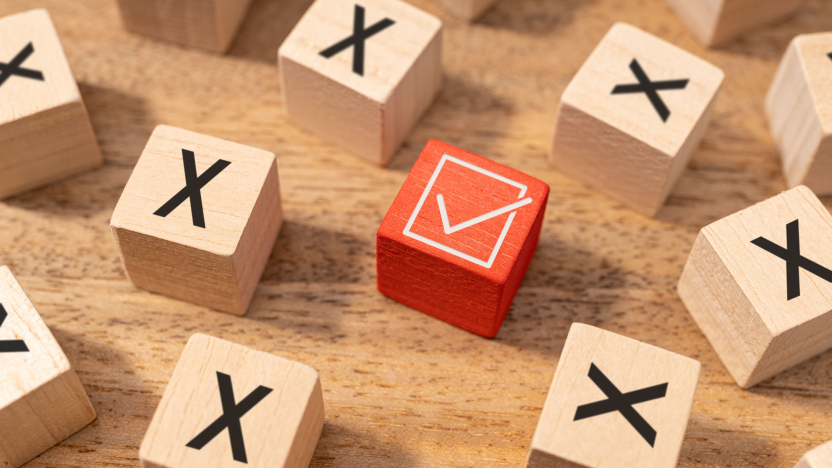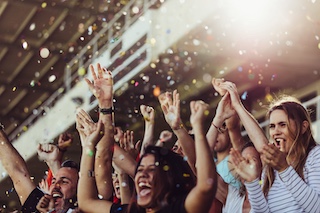The IP dos and don’ts of the Olympic and Paralympic Games

It cannot have escaped your attention that the Summer Olympic Games will start this 26 July in Paris, followed by the Paralympic Games on 28 August 2024. We’ve recapped the main IP dos and don’ts below to help you prepare your branding strategy for this important global event.
While the Olympic and Paralympic Games are first and foremost about sporting prowess, behind the scenes, complex commercial interests inform the use of the names, logos and other associated branding assets. As trademark professionals will know all too well, it’s vital that the owner(s) of the Olympic brands, including the world-famous rings, can protect and enforce their rights to these iconic international symbols. Companies seeking to capitalise on the Olympics buzz need to be aware of the rules and regulations to benefit from the event’s popularity without infringing the organiser’s IP rights. Start preparing your branding now with the help of our handy dos and don’ts and get additional insights and advice by registering for our webinar!
Don't: Use protected brands, slogans, logos and direct references
Avoid the use of protected brands, slogans and logos and direct references to the protected trademarks in your marketing communications or on your products or website.
The use of Olympic brands and symbols (including the Olympic rings and Paralympic arches) is subject to strict rules. Exclusive rights to use these are granted only to official sponsors. 'Paris 2024', 'TeamNL' and 'Olympic' are also protected.
Experience shows that the International Olympic Committee (IOC) and national organising committees take prompt and robust action against any unauthorised commercial use of the Olympic names, symbols and related signs.
Any attempt to feature these protected marks on your website or in marketing activities will be interpreted as use to promote your goods or services, which is not permitted without permission. Only purely informative and non-commercial use of the brands is permitted under certain circumstances.
Do: Respond to sporting performance in a creative and non-commercial way
Look to create content that doesn’t create a commercial association with the Olympic and Paralympic Games. For example, you could seek to play on the general theme of sports or sporting culture. However, watch out for any use of (even not officially protected) words such as gold/Paris/2024 to ensure your activities do not wrongly associate your company with the Games.
Creative messages that do not imply false associations with the Olympic Games and that focus on sharing informational and non-commercial information are permitted. By focusing on original content that promotes a positive atmosphere and without direct references to any protected IP, you can share information without fear of being accused of unauthorised product or service promotion.
Don't: Include direct and indirect partnership implications
It is very important to avoid both direct and indirect references to a partnership between your organisation with the Olympic and Paralympic Games if you are not authorised to do so. Unauthorised references may have legal consequences.
Do: Research your options if you sponsor or are associated with an athlete
Olympic athletes and their sponsors have more opportunities to take advantage of the commercial opportunities surrounding the Olympic Games (as per Rule 40 of the Olympic Charter). However, they are still barred from using Olympic symbols and other related associations in commercial communications. Instead, the scope is mainly related to supporting and campaigning for athletes, including posting thank you and congratulatory messages on social media.
Finally, do consult an expert for advice on IP and the Olympics
Since the regulations are complex, it is wise to consult an expert before launching any Games-related branding and marketing activities.
With the right advice, you can sit back and relax the beautiful sporting performances – and IP surprises – at this year’s event.
Make sure you’re prepared for Paris 2024 by registering for our webinar, speaking to your Novagraaf attorney or contacting us below.
Annette Lindeman is a Trademark and Design Attorney at Novagraaf in Amsterdam.
Contact us for more information
Latest news
Webinars & events
[Trademark event] Join us at the ECTA 43nd Annual Conference
This June, ECTA heads to Berlin under the theme ‘Bears on the Loose’ to explore the evolving IP landscape in a purposefully playful and engaging spirit. We hope to see you there!
Webinars & events
[Webinar] When politics meets intellectual property: Insights, strategies and key lessons
Join us to explore the tension between IP and politics using real-world cases, from the Obama Hope poster to Trump and IKEA v Vlaams Belang, and learn how to navigate IP conflicts, clear IP for use in campaigns, and protect and enforce your valuable assets before major announcements
Webinars & events
[Trademark event] Will we see you at INTA 2025?
The 2025 Annual Meeting of the International Trademark Association (INTA) will take place in San Diego, California, USA from 17-21 May. If you're attending, why not schedule a meeting with Novagraaf's delegation of IP experts?
